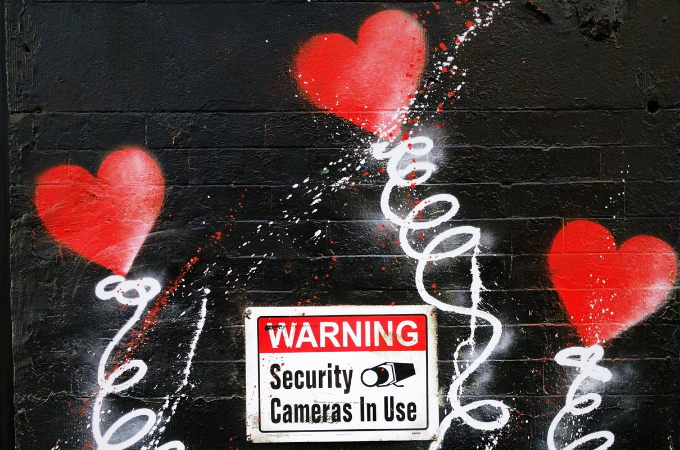
I.
You are alone. Walking down a road filled with people, all in pairs. There are a lot of red and white in the air. You pass the first bar, and you see couples, all formed by a man and a woman. Some are seated, some are standing, dancing to the trending songs blaring from the speakers – all songs about love and romance and companionship – but you are alone.
You are alone. Nigeria happened to you. Nigeria is happening to you. Your aloneness which translates to loneliness is being sponsored by your country, your beloved country whose flag you saluted daily and whose anthem never left your mouth as a kid. You thought a walk will save you – from your room, from the boredom, from the blades, from yourself – but now it seems that it was never a good idea. You are alone in the surging crowd. You think of returning to your room, but you continue the walk. You have a destination in mind.
You get to the second bar. It is his favourite and for the few months you were together, your favourite also. Not because you are a drinking type, but because it is his favourite, and because you are still in love with him.
As you expected, you see him sitting there. Not alone as you’d thought, but with a girl. You look at the girl and you do not know who she is. You have never seen her in the area. You wonder where he hooked up with her. A sudden urge to get to their table and upturn it like he upturned your life seizes you. This urge pushes you to their table but on getting there, leaves you like a fish out of water. So instead, you just stand there, an intruder to a couple’s love life, with the eyes of the girl boring into you and his mouth hanging open.
He recovers from the shock and calls you by name. You do not answer. You start moving out the same way you moved in. A frustrated young man. You notice him standing and for a moment you think that he is going to rush after you, to plead with you, but he adjusts his belt and sits. You imagine the girl pointing at you and asking him, “who is that boy?” and you feel like turning, if only to cut off her pointing finger, if only to know what his answer will be. “A friend,” “just a friend,” “a creditor,” “my ex-boyfrie–” You choke on the last description. Ex-boyfriend. You know he will never say that. Not him. Not him who plunged you into this sadness because he needs to survive. Because you guys need to wake up and remember that this is Nigeria else Nigerians who eat only once daily will make a second meal of your heads.
II.
On January 7th 2014, Goodluck Ebele Jonathan, then the president of the Federal Republic of Nigeria signed into law the Same Sex Marriage Prohibition Act (SSMPA). It was the country’s New Year gift to its LGBTQ citizens. The law forbids any “public show of same sex amorous relationship” and made being part of the LGBTQ community an offence punishable by up to 14 years imprisonment. But beyond these 14 years, this law gave rise to state-sponsored homophobia, making gay, lesbian, bisexual, and transgender people lesser humans – people deserving of any punishment even when they have done nothing.
It is not as if Nigeria had been a safe haven for gay, lesbian, bisexual and transgender people pre-SSMPA. No, it has never been. Many LGBTQ people have been killed, molested, and rejected by their families before then. In a country where a person can be set on fire for stealing a bar of laundry soap in the name of justice, many gay and lesbian people, gay people especially, had been set on fire in public spaces like market squares for no other crime than for loving. What the SSMPA did was to embolden these perpetrators of injustice against LGBTQ Nigerians. It legitimized hate and abuses against LGBTQ Nigerians. It is a typical case of nwata nna ya zinyere ohi na-eji ụkwụ agbawa ụzọ / the child sent by his father on a robbery mission kicks every door down because of the confidence he has in he who sent him.
Queer Alliance made it known that there were recorded 105 cases of “human rights violations on grounds of sexual orientation and gender identity” in 2014 alone of which 39 of the cases came from state agents and the remaining from non-state actors. This was after the SSMPA was passed. The SSMPA made it possible for people to kill LGBTQ people without having any fear of a legal action against them. It made loving a crime and pushed many LGBTQ people in the country deep into their closets, deep into depression, closer to their graves. Nigeria is today one of the worst places to be gay. Nigeria is today without love for the gay person and doesn’t even allow the gay person to love.
As a gay person in the Church, you are constantly reminded of how close you are to hell. You are reminded of how the deepest part of hell is reserved for you. You are announced as the portal through which people go to hell. It wouldn’t have been much of a problem if only hell was considered for one has lots of problems to battle with in this lifetime to be thinking of his fate in the afterlife. It isn’t just hell that the LGBTQ persons brings upon themselves. The food scarcity in the country is caused by LGBTQ people. The epileptic nature of the power supply is caused by LGBTQ people. HIV/AIDS is caused and transmitted only by LGBTQ people. COVID-19 came because countries like the United States of America and Sweden are fighting to uphold the full humanity of LGBTQ people. The hardships are God’s punishment to a world that is going astray, a world moving away from the natural order, away from how He intended love to be.
Because these teachings are coming from the pulpits, because these teachings are proclaimed by men and women of God, nobody challenges them, nobody questions them, nobody asks what the link between being gay and being the cause of COVID-19 is. God works in mysterious ways and also punishes in mysterious ways. If God had sent down fire and brimstone to consume Sodom and Gomorrah what makes you think he cannot send down COVID-19 or even its Omicron variant to punish the world for allowing LGBTQ people to live? Suffereth not the witch to liveth.
Outside of the Church, in schools, even in higher institutions where one expects a level of advancement in the understanding of human sexuality, the LGBTQ person is still faced with a lot of erasure and discrimination. One cannot openly talk about gay rights, or the science of human sexuality, else he is termed gay and here being gay doesn’t mean loving someone of the same sex as you. Here being gay does not mean being happy, here being gay means being the human incarnation of the Christian Devil – that bad tooth that must be removed for the mouth to receive fresh air. The LGBTQ student is forced to deny that part of their existence, to tuck it away inside his wardrobe – that is if he does not have a roommate – and straighten up. He is expected to have a girlfriend, or she, a boyfriend, and should parade the school with them to announce their straightness, else, two years into university and one hasn’t pointed at a particular girl as his girlfriend, he is suspected of being gay. With that suspicion may come harm. With that suspicion often comes harm.
Homophobia in Nigeria cuts across ethnicities, religions and classes. According to Richard Akuson, a lawyer and the Founder of the Nasty Boy Magazine, a magazine which seeks to “challenge conventional norms about gender and masculinity,” who himself was a victim of a homophobic attack in his hometown, Akwanga Nassarawa State, “homophobia is the tie that binds a divided country; the one thing a nation of chronic ethnic loyalties, of religious tension, of failed government, can agree.”
Love in Nigeria is not open for all. Not everyone can love. Not everyone should love. The country determines who can love and to whom. Even when in defiance one loves against the dictates of the country, your love cannot be celebrated. Your love should not be open. Your love is a crime that can only be made right, constitutionally, by your 14-year segregation, but commonly, with your blood.
When on 14th February people move with their significant others, you should know that in Nigeria it is not a Lovers Day. It’s a Cis-hetero-lovers’ Day. Make no mistake about that. If your love life is not a Cis-hetero-love life, Valentine’s Day in Nigeria is not for you. You do not qualify as a lover. You are not in love. You are alone. A criminal waiting to be burnt.
For every ten cis-hetero couples you see marching down the road, in pubs, in bars, in theatres and cinemas, in concert venues, enjoying their love life, professing their love or cementing their love with engagement rings, know that there is a gay couple out there, locked in their closets, trying to be like every other lover on Valentine’s Day. There is a gay boy out there, locked in his closet, alone, trying to love himself. Seethed with doubt about his humanity and reading books on self-love.
III.
It is exactly a year since you broke up with him. In this same bar. Filled with lovers who are enjoying their Valentine’s Day. You guys came as lovers, not in a way that announces it to the people around like others do, but in a way that suggests that you guys are the best of friends waiting for your girlfriends to join you.
The day was going well. You’d just spent thirty minutes there, you sipping your Hollandia Yoghurt, and him, a bottle of Life. You never said much to one another as the eyes did the talking. You were both conscious of where you were and what that means to people like you.
You decided to no longer play it safe, so you leaned closer and kissed him on the lips. He jerked his head back and pushed you away from him. His jaw dropped. His eyes widened. He looked around to see if anyone had noticed. Luckily for both of you, nobody had. He heaved a sigh of relief and asked you in a tone different from the one you guys had been using, “what is the meaning of this?” You opened your mouth to explain but the yoghurt had drowned your words. You closed your mouth. How do you explain that you are tired of the hide-and-seek game? How do you explain to him that the closet now suffocates you – that its walls are closing on you? How do you explain to him that you can no longer choose between loving and surviving? That you have chosen both?
He left the bar, his bottle of Life half empty. You finished your yoghurt and headed home. You know he will come back to you. He always does. His anger never lasts. Three hours passed and he didn’t call. None of his temper moments had ever lasted that long. You picked up your phone and called. Switched off. You sent him an SMS apologizing. You said something about being overtaken by love. Something about not wanting to feel alone even while you are with a companion. Something about wanting to suck warmth from his lips. You laid waiting for his reply. You fell asleep.
His reply came and it was as short as it was punching. It is over between us. He had chosen his safety over love he’d said. He just had to.
You wonder which kind of country makes loving and surviving, two mutually exclusive offers. You know you are angry with the person you just left inside the bar. You know the anger is not about him. The anger is about a country that tells a gay man to choose between loving and living. The anger is for a country that doesn’t even allow a gay man to live for being alive without loving is merely existing.
You wish him well in your heart and for the first time since he broke up with you, you sent him a message. I wish you well. I hope she loves you as I do. Happy Valentine’s Day. You block his number and resolve to move on. To move ahead. To love yourself even if your country hates you. To love yourself even if it’s the closest you can get to being loved.
Happy Valentine’s Day to you.



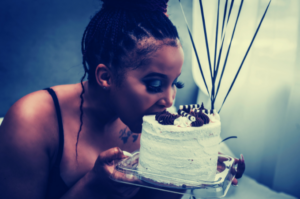
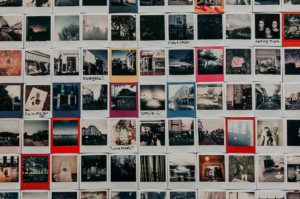
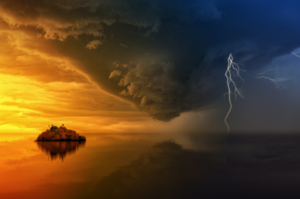
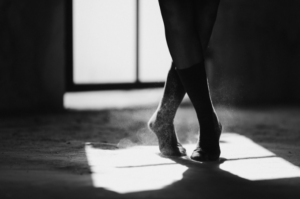
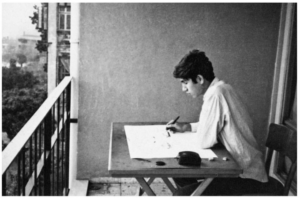


COMMENTS -
Reader Interactions